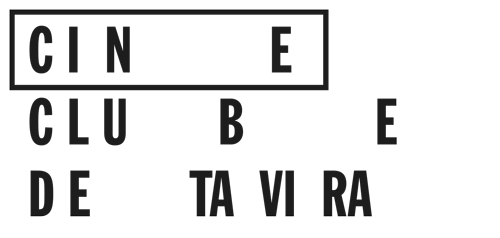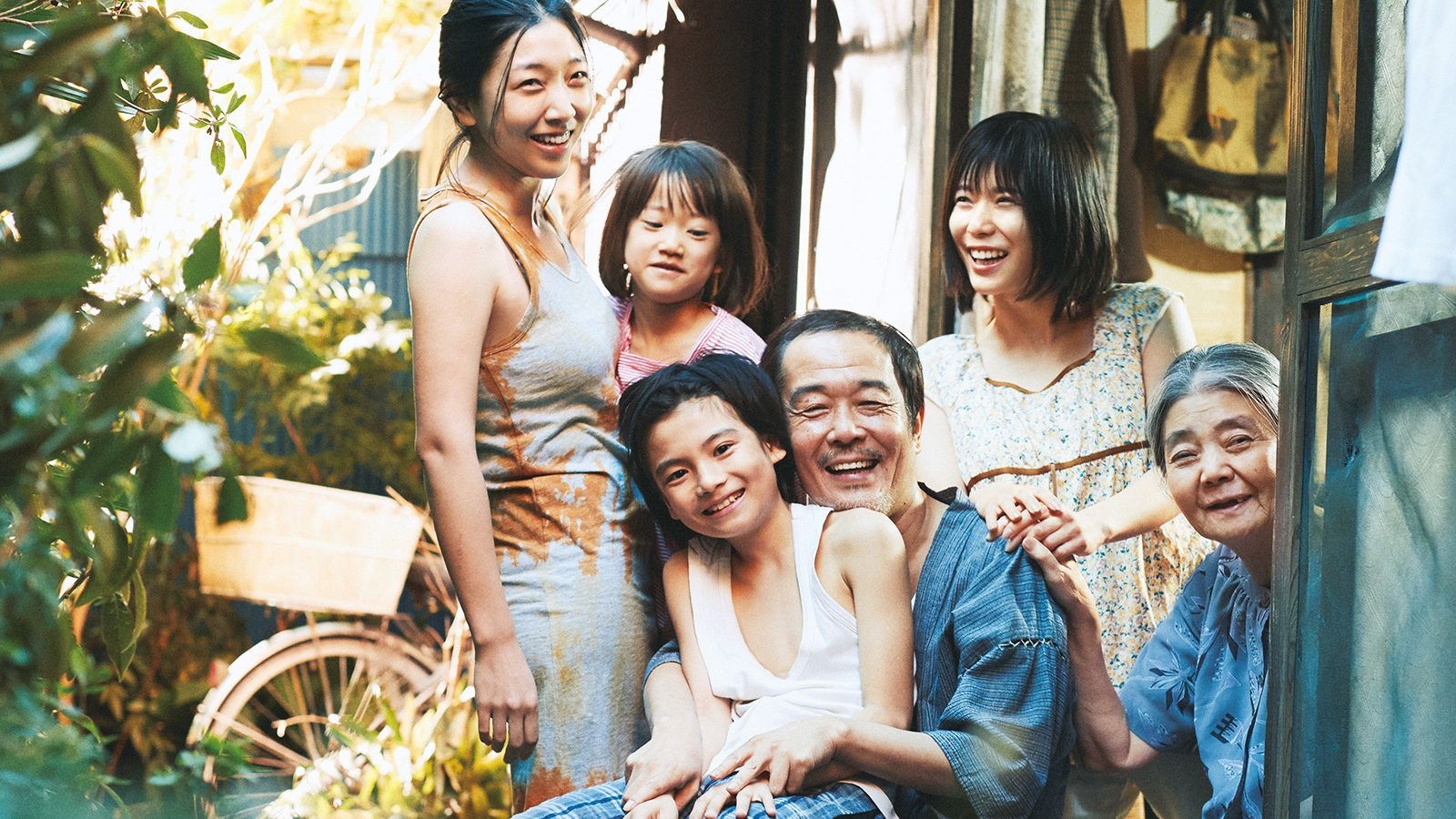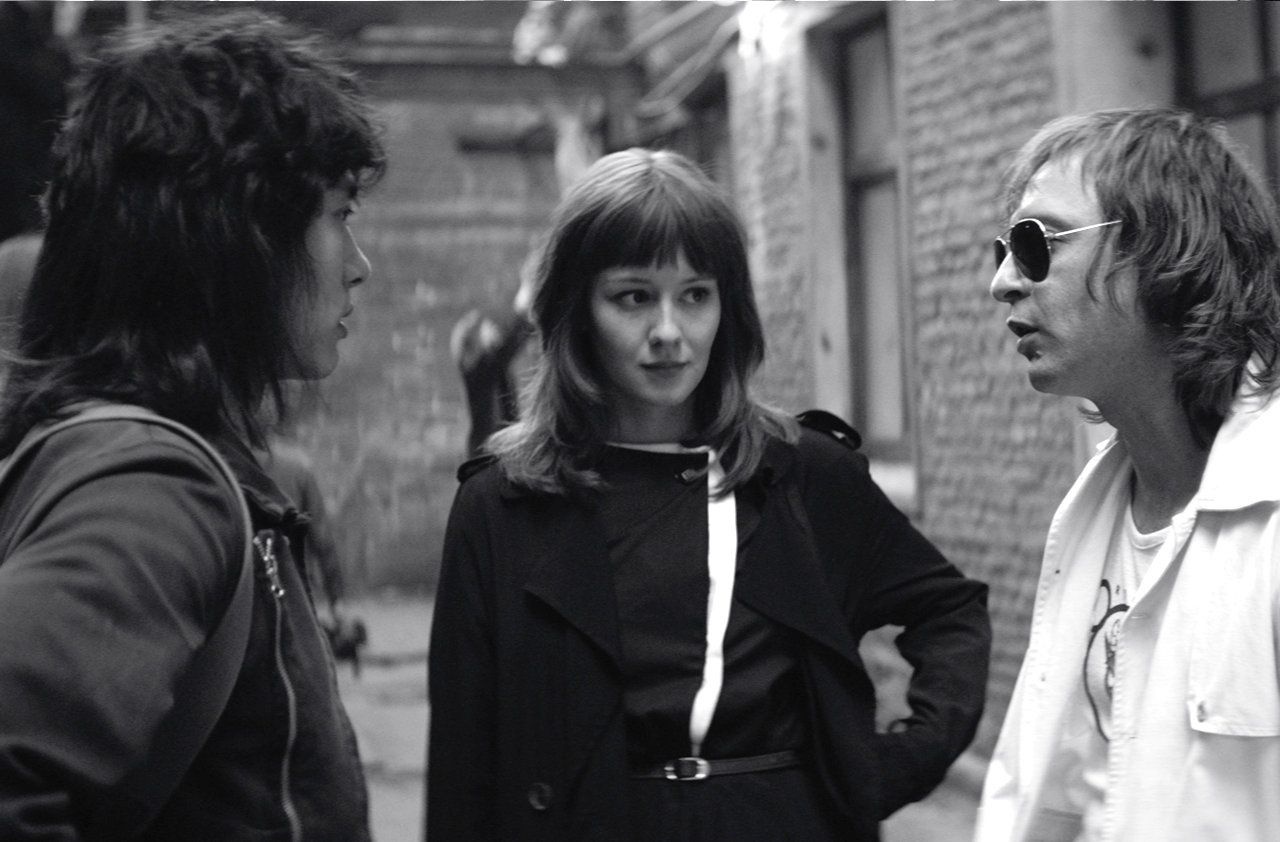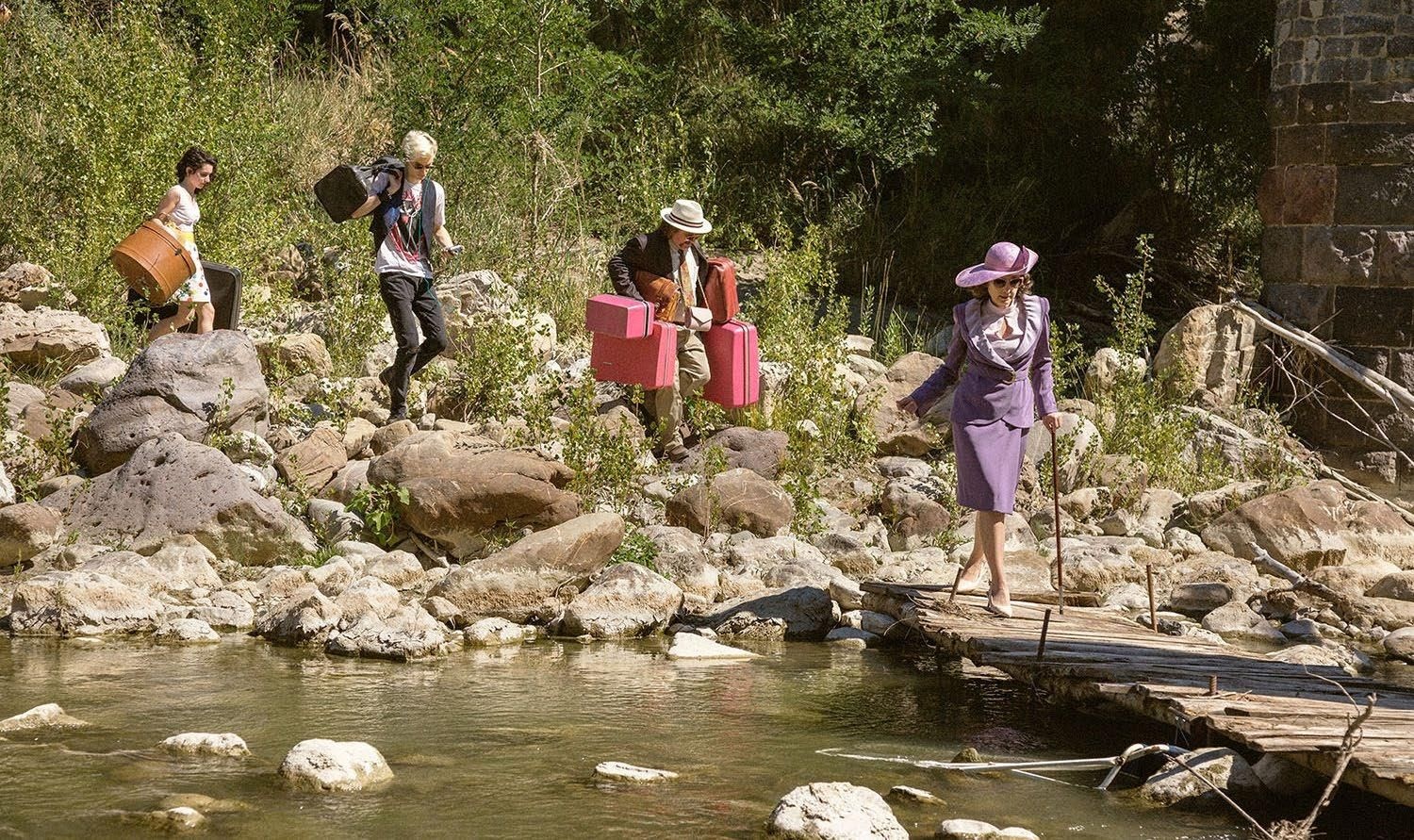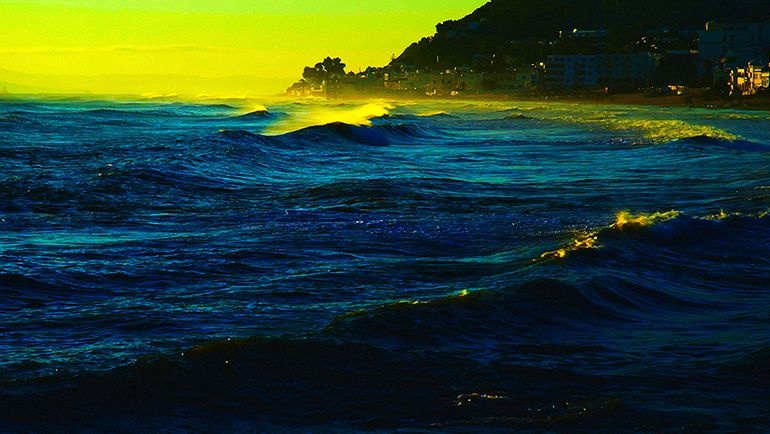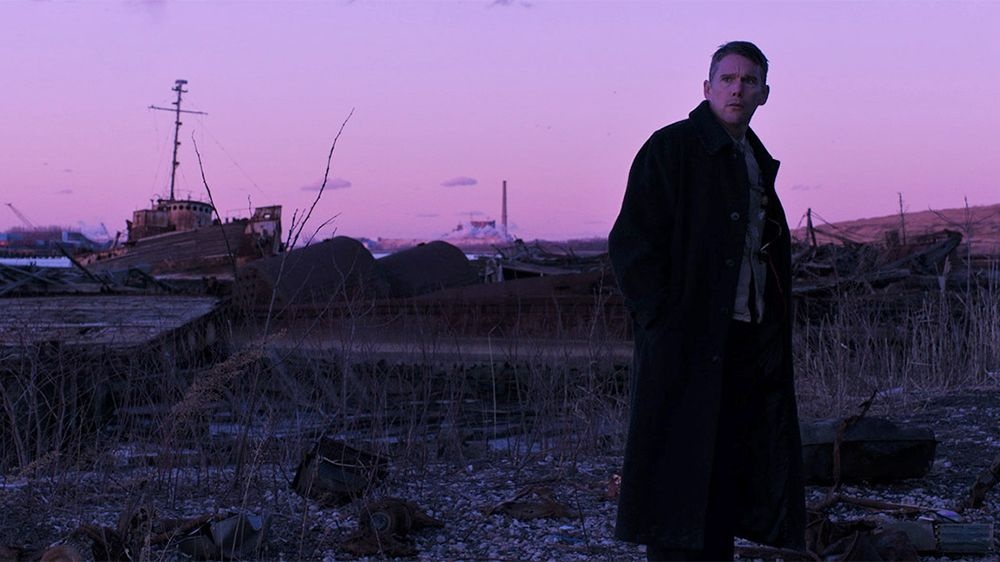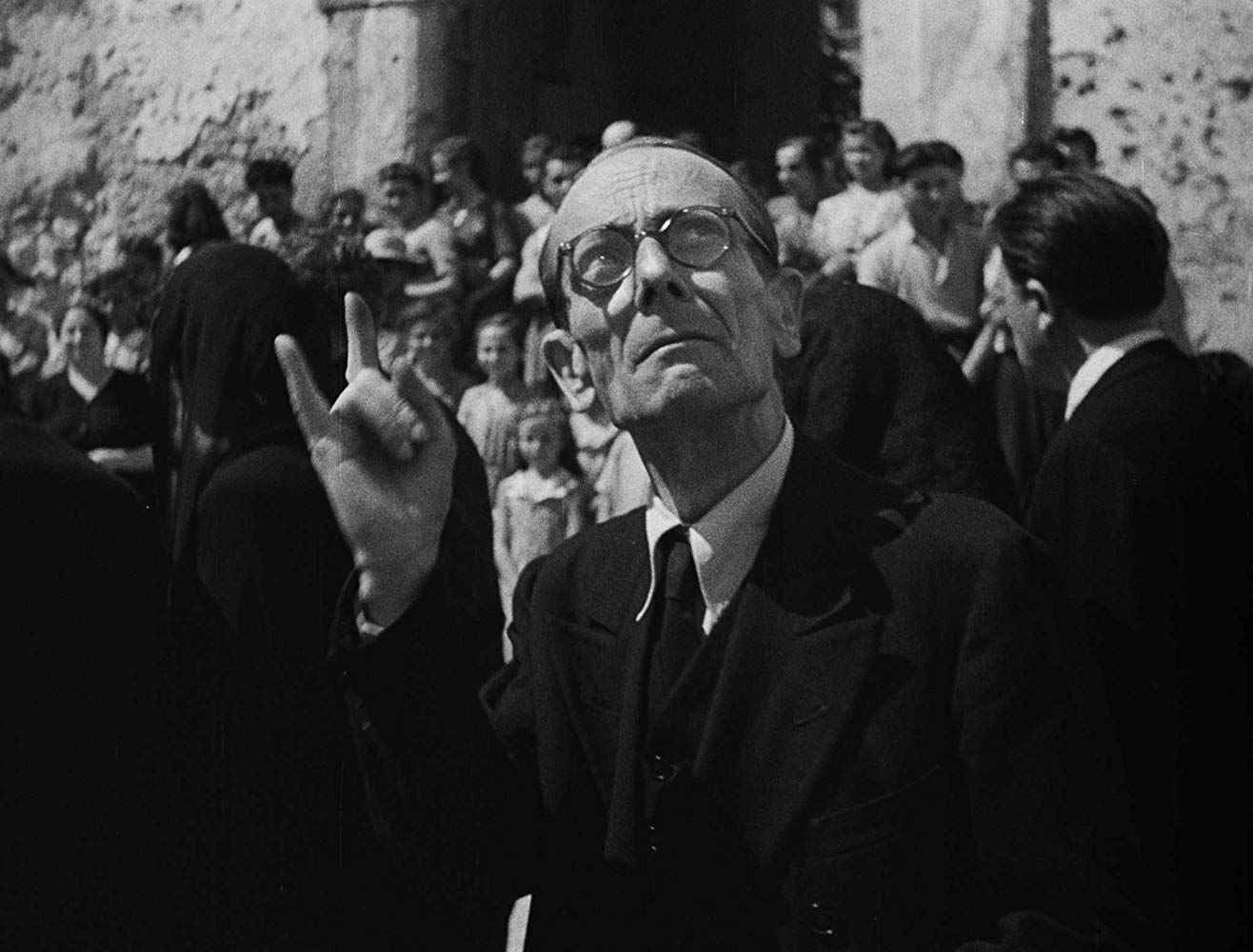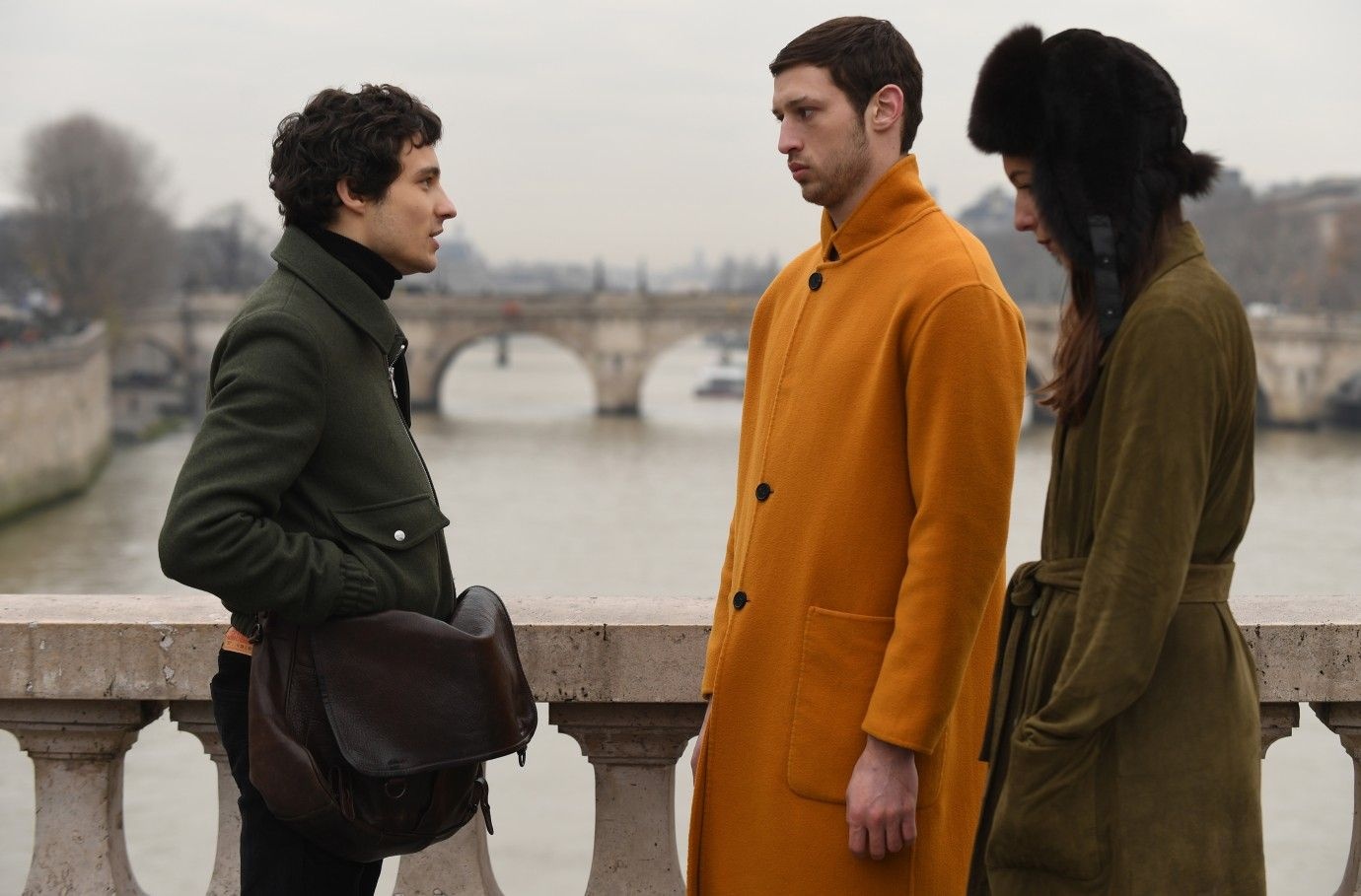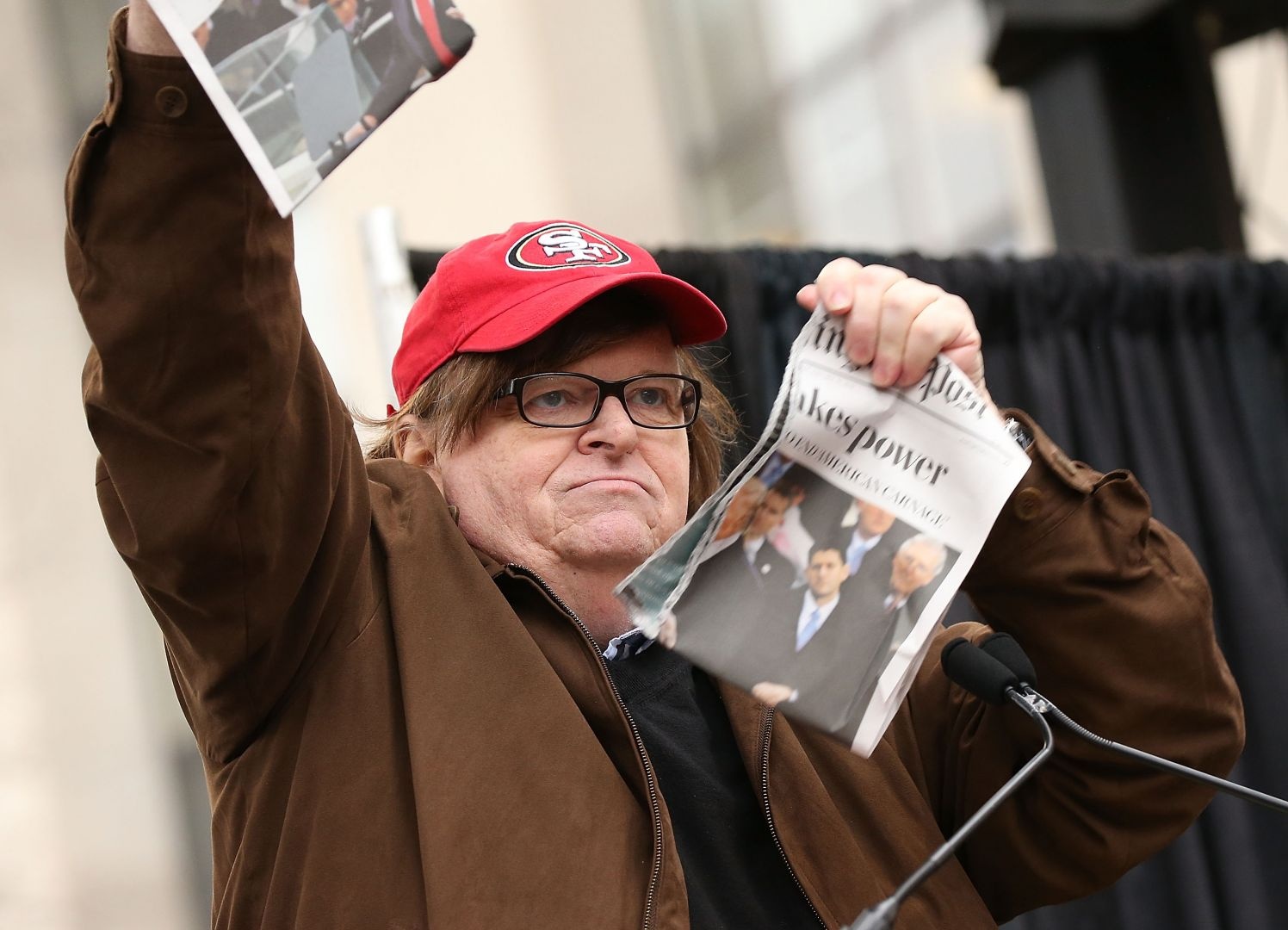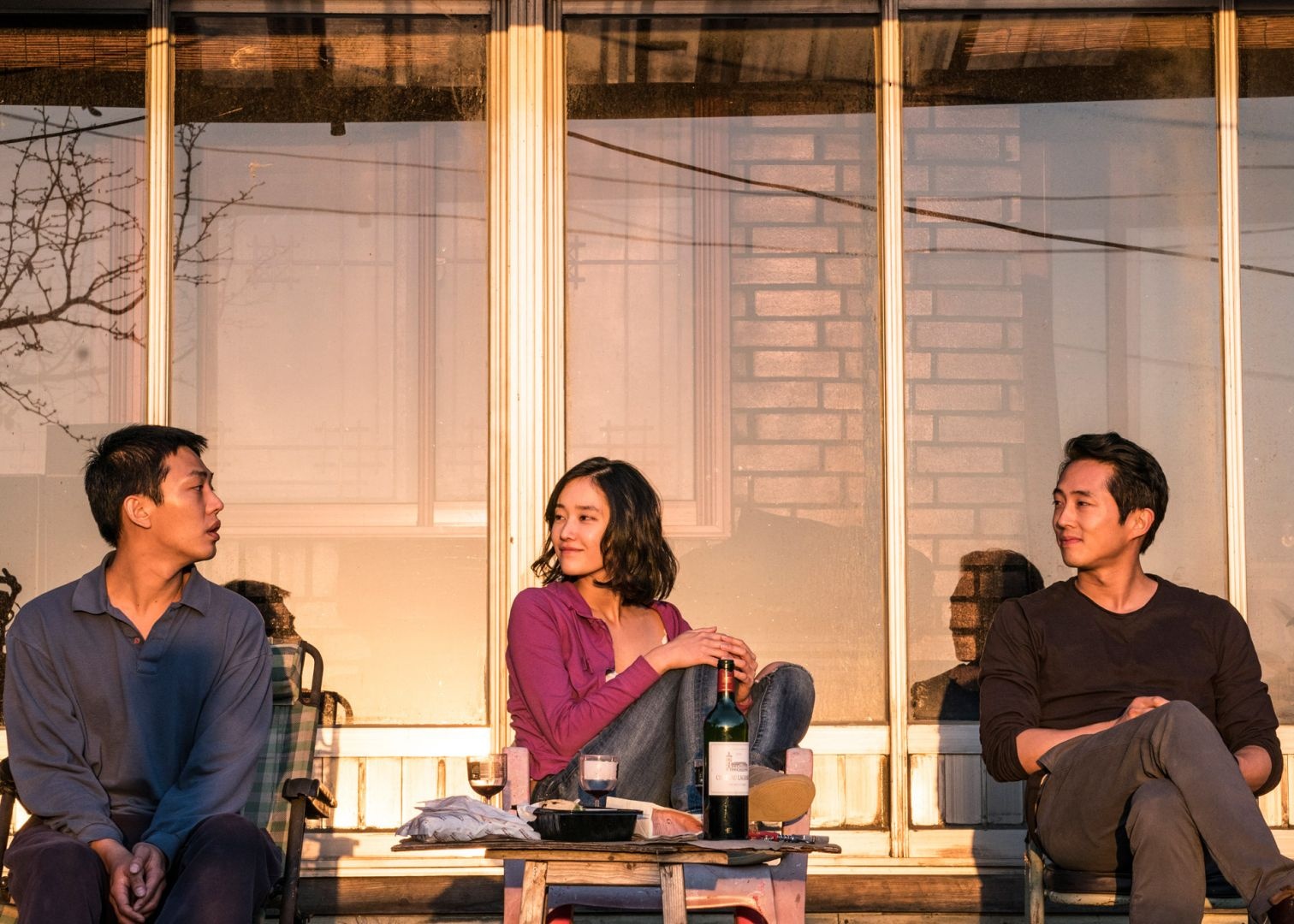Archive
Crime, Drama - JP, 2018, M/14, 120min. V. O. em Japonês/Legendado em Português/English Subtitles
Realização e Argumento: Hirokazu Koreeda
Fotografia: Ryuto Kondô
Com: Lily Franky, Sakura Andô, Kirin Kiki
Winner of the “Palme d'Or” at the 2018 Cannes Festival, Shoplifters, by Hirokazu Koreeda, presents us with a marginalised family that lives on the fringes of the rest of Japanese society. Shoplifters is a brilliant and audacious film, intense and surprising, one of the best in Koreeda. Much due to the brilliant performances of the cast, the result is a gratifying and deeply moving drama, reliving themes from previous films such as Nobody Knows (2004) and Like Father Like Son (2013).
Despite all its kindness and calmness, Shoplifters has a devastatingly clear view of modern Japan. Usually, Japanese cinema shows us two possible societies. One is quite advanced, where people live comfortably taking advantage of technology and capitalism. The other portrays the world of organized crime, where no one seems to dedicate himself to hunger crimes. For this reason, Shoplifters surprises by showing naturally the shortages of a working class that hardly earns what it needs to survive, without having to romanticize poverty or delinquency.
The slow revelations, the natural interactions and the prudent spacing between shock and surprise are proof that this master filmmaker is in perfect harmony with his designs and his art.
2018: Festival de Cannes: Palma de Ouro
Biografia, Música, Romance - RUS, 2018, M/12, 126 min. V. O. em Russo/Legendado em Português/English Subtitles
Realização: Kirill Serebrennikov
Argumento: Mikhail Idov, Lili Idova, Iván Kapitonov, Kirill Serebrennikov
Fotografia: Vladislav Opelyants
Com: Teo Yoo, Irina Starshenbaum, Roman Bilyk
Avant-garde Russian filmmaker Kirill Serebrennikov (The Student) returns to the big-screen with a tribute to the early years of Russian rock. Leto puts us in the underground rock scene, in Leningrad, during the 1980's, setting itself in a climate where change is asked but also felt.
A confirmed rock star, Mike (Roman Bilyk), struggles to promote rock music in the declining Soviet Union, when another musician, Viktor Tsoi (Tee Yoo), arises as a new promising talent. Then, a love triangle emerges around these two characters and Mike's wife, Natasha (Irina Starshenbaum). Together with friends, they will change the trajectory of rock n'roll music in the Soviet Union.
At heart, this is a story of musicians who are dealing with several layers of frustration — cultural, artistic, personal — but manage to break through, one way or another.
Serebrennikov doesn’t go full glam with the film,. For the most part, Leto is shot in lustrous black and white that can seem gritty at times but more often turns the film into a rock ‘n’ roll reverie, working as a more universal story of striving and rock and roll dreams.
2018: Festival de Cannes: Melhor Compositor; Nomeado Palma de Ouro
2019: Russian Guild of Film Critics: Melhor Realizador, Melhor Compositor
2019: Nika Awards: Melhor Realizador, Descoberta do Ano (Roman Bilyk)
Drama - DE/FR, 2018, M/12, 101 min. V. O. em Alemão e Francês/Legendado em Português/English Subtitles
Realização: Christian Petzold
Argumento: Christian Petzold (Romance: Anna Seghers)
Fotografia: Hans Fromm
Com: Franz Rogowski, Paula Beer, Godehard Giese
This film is loosely based on the eponymous 1944 novel by Anna Seghers. As in the book, the film juxtaposes past, present and future. We follow Georg, a technician for German radio and television and an illegal refugee in France, who is given, by a partner, the mission to deliver two letters to a writer in Paris. Georg discovers that the writer has committed suicide and left an unfinished novel, which brings to mind Walter Benjamin’s tragic death in 1940, also in France. The sinister circumstances lead Georg to impersonate the late writer in order to get a visa and escape to Mexico.
The particular timeless character of the story takes a clear stance towards social and political issues that are still current.
Last year we opened Mostra with Western, a film by Petzold’s fellow student at the “Berlin School”, Valeska Grisebach, which showed another point of view, less metaphoric but equally critical of a Europe and a world that forces people into geographical mobility and marginality, thus encouraging types of relationships that do not develop fluidly.
2018: Festival de Berlim: Selecção Oficial de longa-metragens em competição
2018: BAFICI: Selecção Oficial (Fora de Concurso)
2018: Prémios do Cinema Alemão: Nomeada Melhor Filme, Melhor Som
Drama - IT/CH/DE/FR, 2018, M/12, 125 min. V. O. em Italiano/Legendado em Português/English Subtitles
Realização e Argumento: Alice Rohrwacher
Fotografia: Helene Louvart
Com: Adriano Tardiolo, Luca Chikovani, Alba Rohrwacher, Sergi López
Alice Rohrwacher, director of Alice in Wonderland (2014), returns with a film that mixes neo-realism, magic and social criticism.
Lazarus, a young peasant of exceptional kindness, lives in La Inviolata, a village that has remained isolated from the world and is controlled by Marquesa Alfonsina de Luna. One summer, he becomes a friend of Tancredi. Between them rises a friendship that makes Lazarus travel in time and takes him to know today's world.
It's Dostoevsky's The Idiot. A wise character who, in this case, not having lost the knowledge of his past life is the only one who knows how to recognize the different types of plants. A wink, no doubt, to Les Glaneurs et la glaneuse by Agnès Varda.
2018: Festival de Cannes: Melhor Argumento (ex aequo)
2018: Prémios do Cinema Europeu: 4 nomeações (incluindo Melhor Filme)
2018: Festival de Sitges: Prémio Especial do Júri, Secção Oficial em Competição
2018: National Board of Review (NBR): Melhor Filme Estrangeiro do Ano
Drama - CH/FR, 2018, 84 min. M/14 - V. O. em Francês e Inglês/Legendado em Português/ English Subtitles
Realização e Argumento: Jean-Luc Godard
Fotografia: Fabrice Aragno
Com: Jean-Luc Godard (Narrador), Anne-Marie Miéville (Narrador), Dimitri Basil
The prolific Godard's newest work, The Image Book, is the apex of his cinema of symbolism and collage. There are no actors. At most, we hear Godard's eloquent and introspective voice, now with 88 years old, narrating the film and reflecting on our time, humanity, society and cinema.
For Godard, cinema is the book of images of the last and today's century; the documentation of the history of modernity and contemporaneity. Through The Image Book, Godard invites us to reflect on history, and it builds a journey in an incessant collage of images and sounds that permeate the history of art in its most different forms. Pasting scenes from films, reports, home videos and even drawings, the filmmaker approaches the functions of time and space, using in particular the case of images about the Arab world and how they are perceived by the western world. It’s the work of a filmmaker who’s looking back at his films and the films of his time -- and looking ahead to radical changes to come in the cinema and in the world at large.
2018 : Festival de Cannes: Palma de Ouro Especial
2018: International Cinephile Society Awards: Grande Prémio
Drama, Thriller - US, 2017, M/16, 133 min. V.O. em Inglês/Legendado em Português
Realização e Argumento: Paul Schrader
Fotografia: Alexander Dynan
Com: Amanda Seyfried, Ethan Hawke, Cedric the Entertainer, Victoria Hill
Toller (Ethan Hawke) was a military chaplain who, after the death of his son, decides to take over the reins of a small Calvinist church, First Reformed, where almost no one goes and which fulfils a more touristic than religious function. Until Mary appears to ask for help for her husband, a radical ecologist who is going through a deep crisis.
Schrader has always felt a predilection for French filmmaker Robert Bresson. It is not surprising, therefore, that he has returned to one of the principal works of that director, The Diary of a Country Priest. He also has a lot in common with Bergman's Winter Light. An Ozu in the silences, in the brief meditations interspersed during filming. And as it couldn't be less, we have the chaplain Toller, echoed by Travis of Schrader's own argument for Taxi Driver.
With elements of suspense and a realistic formal consistency, First Reformed is full of uncoverings and unexpected changes. A cheerfully counter-current film that deals, among other things, with loneliness, spirituality and the threat of climate change.
2018: Prémios Gotham: Prémio Melhor Argumento, Melhor Actor
2018: Toronto Film Critics Association Awards: Prémio Melhor Actor, Prémio Melhor Argumento Original
2019: Óscar: Nomeado Melhor Argumento Original
Roberto Rossellini considered it his most original film. La macchina ammazzacativi has recently been rediscovered, following its restoration. Rossellini takes neo-realism or realism as a starting point, only to find a path closer to a fable, based on a text by Eduardo De Filippo. Rossellini gives way to his fantasy, while maintaining the improvisation regarding the script, the documentary-style shooting of real scenes stripped of cinematic artifice and the genuine mix of professional actors and amateurs that characterizes his films.
A modest photographer from a small coastal town meets a strange character – who introduces himself as Saint Andrew, and bestows upon him the gift of petrifying any person whose picture he takes. Celestino, for that is the photographer’s name, thus establishes himself as a sort of vigilante who decides what is good and what is evil at will. But Celestino loses control of the camera; now it dominates him.
A fable about the mistrust of the power of the camera (or cinema) to reproduce life.
Drama - Fr/IL, 2019, M/14, 123 min. V. O. em Francês, Inglês e Hebraico/Legendado em Português/English Subtitles
Realização: Nadav Lapid
Argumento: Nadav Lapid, Haim Lapid
Fotografia: Shai Goldman
Com: Tom Mercier, Quentin Dolmaire, Louise Chevillotte
Israeli co-writer/director Nadav Lapid's unusual migration drama follows Yoav (Tom Mercier), a young Israeli man who is determined to erase his national identity and become French. With the help of a Franco-Israeli dictionary, he resolves to stop speaking Hebrew, put his troubled past behind him and ace his upcoming naturalisation test.
Lapid presents variants of embattled Israeli identity, continuing the thematic investigation conducted in his first two features, Policeman and The Kindergarten Teacher. By setting Synonyms outside of Israel, Lapid introduces an explicit international dimension for the first time. Yoav imagines France as an utopia, whose core egalitarian values – liberté, égalité, fraternité – and strict separation of church and state are the opposite of Israel’s
Lapid continues to exhibit a singular blend of intensity and absurdity, as well as a distinct attention to cinematic craft. Working once again with cinematographer Shai Goldman, he covers entire scenes in lengthy medium close-ups that serve to heighten the constant sense of claustrophobia, pushing the characters (and the viewer) to the breaking point
2019: Berlin International Film Festival: Urso de Ouro - Melhor Filme, Prémio FRIPESCI
2019: Sydney Film Festival: Nomeado Melhor Filme
Documentário - US, 2018, M/12, 130 min. V. O. em Inglês/Legendado em Português
Realização e Argumento: Michael Moore
Fotografia: Luke Geissbuhler, Jayme Roy
Com: Michael Moore, David Hogg
Michael Moore, the documentary filmmaker who won an Oscar for Bowling for Columbine and the Palme d'Or for Fahrenheit 9/11, once again portrays the socio-cultural reality of the United States and the political moment the country is experiencing at the moment.
The title Fahrenheit 11/9 refers to his acclaimed documentary Fahrenheit 9/11 by the date on which Donald Trump was declared president-elect on 9th November 2016. Michael Moore portrays the 2016 presidential election and Trump's first two years in office trying to answer the two most important questions of the Trump era: "How the hell did we get here?" and "How do we get out?".
Moore hopes that the facts shown in his documentary will be so devastating that the film will contribute to undermine the credibility that Trump has among his followers.
2018: Writers Guild Awards (WGA): Nomeado Melhor Argumento de Documentário
2018: Prémios Razzie - Pior Actor (Trump)
Drama - KR, 2018, M/12, 148 min. V.O. em Coreano/Legendado em Português/English Subtitles
Realização: Lee Chang-Dong
Argumento: Lee Chang-Dong, Jungmi Oh (Conto: Haruki Murakami)
Fotografia: Kyung-Pyo Hong
Com: Yoo Ah In, Yeun Steven, Jun Jong-seo e Seong-kun Mun
Burning is a film by the Korean director Lee Chang-Dong, based on the short story Barn Burning by Haruki Murakami. It received critical acclaim at the Cannes Film Festival and has been deemed one of the best films of 2018.
Jongsu is a young man who stumbles upon Haemi, an old childhood friend who invites him out on a date. But just as the relationship is beginning to blossom, she departs for Africa, leaving him in charge of her cat. Upon her return, Jongsu finds out that Haemi has met another guy, a young and wealthy man that Jongsu likens to The Great Gatsby. Shortly thereafter, Haemi goes missing…
Somewhere between Faulkner and Murakami, Burning has a magnetism that is hard to explain. There is a suspenseful tone, but from a personal and introspective point of view. This is a story of uncertainty and obsession, where the characters’ lives unfold naturally. The atmosphere of Burning will most probably be coming back to us for some time after seeing the film.
2018: Festival de Cannes: Selecção Oficial, Prémio FRIPESCI
2018: National Board of Review (NBR): Top dos 5 Melhores Filmes Estrangeiros
2018: Cahiers du Cinema: Nomeado para Melhor filme (4º lugar)
2019: IndieLisboa: Nomeado para Prémio Silvestre Melhor Longa-metragem
